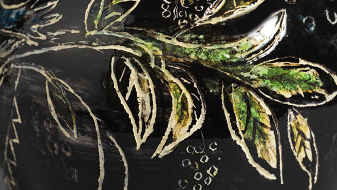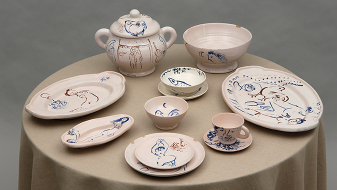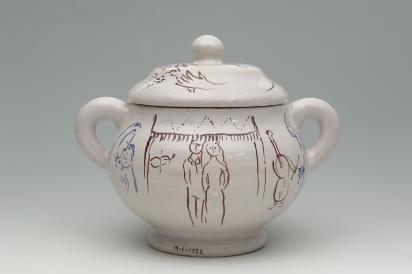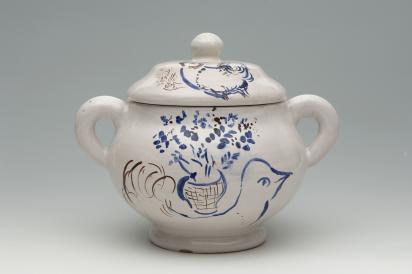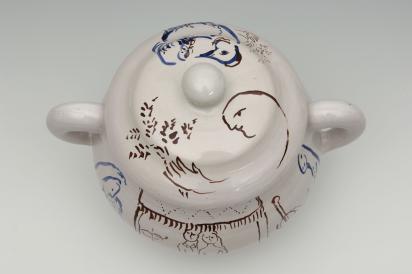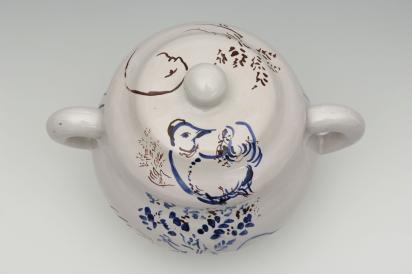For his daughter Ida’s marriage to Franz Meyer on January 19, 19521, Chagall created a one-off wedding service at the Madoura studio in Vallauris. Dedicated “Pour Ida de son papa” (“For Ida, from her papa”), the 77-piece set2 is based on traditional Provençal tableware, including dishes, soup tureens, gravy boats, plates, bowls, cups and saucers. Light, graphic cobalt blue and burnt Siena designs stand out against a monochrome white glaze on thick clay. The pieces’ simple, elegant shapes are complemented by the vibrant, sketched, almost calligraphic decorations painted by Chagall, who gave free rein to his imagination and the fluidity of movement. The decoration seems spontaneous, an effect very different from that found on Chinese blue and white ceramics3. It features circus scenes ([[10 894]]), tender lovers ([[10889]]), hybrid animals reminiscent of Russian folk art ([[10852]]) and offbeat, sometimes funny scenes with a lively sense of humor (Ida Chagall’s wedding service: relish dish 1: Lovers with Fan [Service de mariage d’Ida Chagall : ravier 1 : Amoureux à l'éventail] (1951)) ; (Ida Chagall’s wedding service: saucer 10: Eyes in Flowers [Service de mariage d’Ida Chagall : sous-tasse 10 : Le regard dans les fleurs] (1951)). The decoration is similar to the prints and drawings of the early 1950s. Remarkable for their brisk, free-flowing style, Chagall wanted the scenes to be a snapshot celebrating life. The dishes feature surprising decorations inviting the wedding guests into a mischievous, heart-warming world that enhances the taste experience. A subtle, harmonious tribute to his daughter, the service is a rare example of functional tableware created by Chagall. It was actually used during the wedding and other receptions.
A.GCeramic
Ida Chagall’s wedding service: Soup tureen: Bride and Groom With Flowered Rooster
soupière : Mariés au coq fleuri
(Service de mariage d'Ida Chagall : soupière : Mariés au coq fleuri)
- No. C-93
- 1951
- Soup tureen
- pink ochre clay, white enamel, cobalt blue and iron oxide decoration
- 10 1/4 x 13 3/8 x 9 13/16 in. (26 x 34 x 25 cm)
-
Dated 19-1-1952 on the base
- Pottery studio: Madoura
- Private collection
